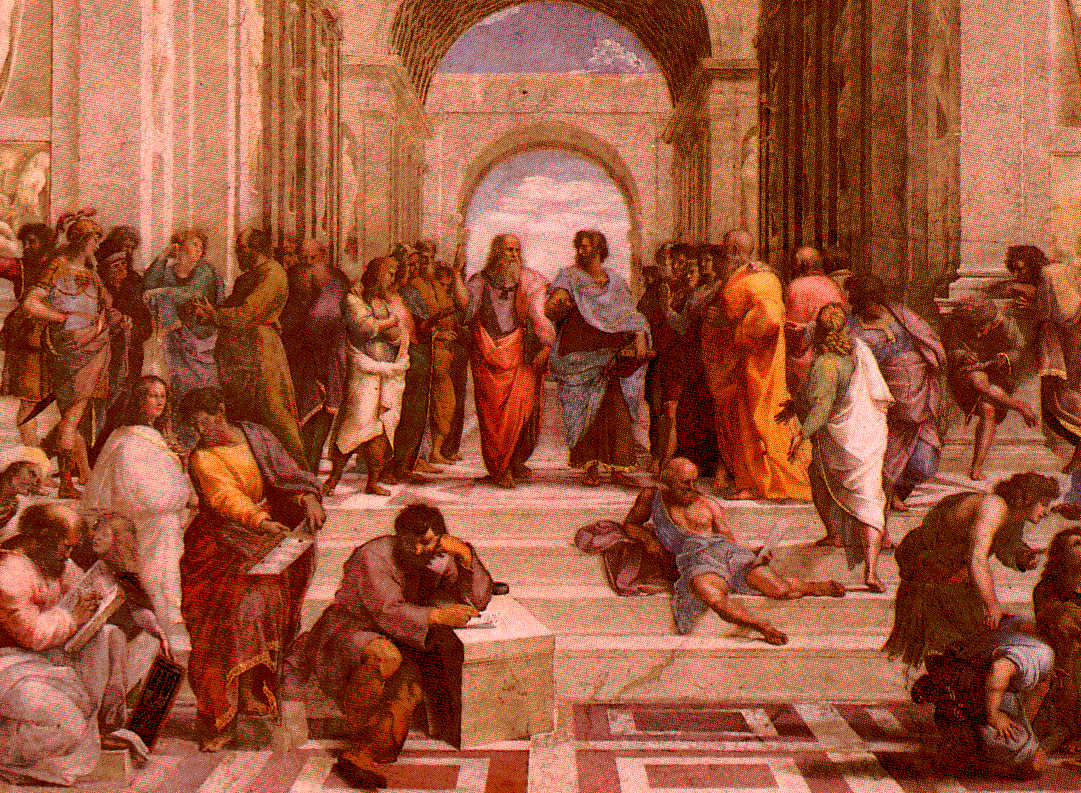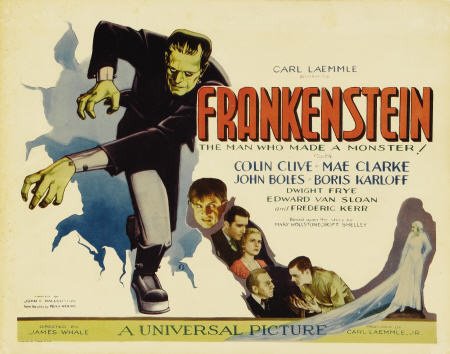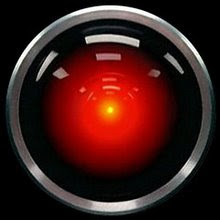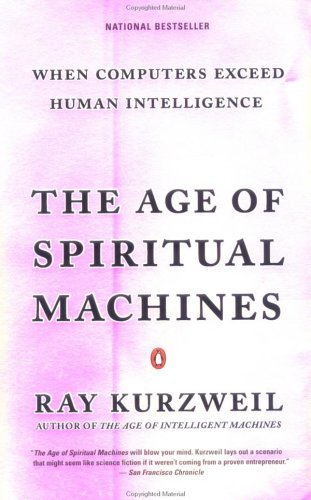
The Age of Spiritual Machines:
Ray Kurzweil
Introduction
For those who have read The Age of Spiritual Machines, this page is an academic analysis of that work. If you haven’t read this amazing book, you should, especially after reading this analysis. This book is really great, it obviously has made a major impact on me. Anyway, like most people, Kurzweil loves computers. Kurzweil is a remarkable man who helped the blind read. Speech synthesis technology. Making his money by finding a need in computers that could be used to an invention stage and then selling that invention to a major company, then moving on to the next big thing.YOu may be interested in investing in his FatKat company an A.I. stock broker and financial investment specialist. Kurzweil wants to resurrect his late father from the dead using A.I.
How does the transfer from body to machine work? Does our soul get transfered in the process? DO we throw out the body? Is the concsiousness of that person preserved in the machine and the body?He is enthusiastic about their potential, in part because he has been part of its growing influence on humanity. He believes in the need and inevitability of virtual reality, artificial intelligence, radical life extension, conscious machines, and other aspects of a possible future computer-centric world. He is a credible source as his success in computer keyboard designing and voice-recognition has established him as a guru in the computer world.
Defining Kurzweil’s Work: Academic Analysis for a Non-Academic Work
The book The Age of Spiritual Machines explores the future of human/artificial intelligence using a classic exercise in “what ifs.” This is called speculative science and futurology. Because this is predictive, in the same way that a fortune teller is predictive, it is not a peer-reviewed academic book. Academics can and will easily criticize his work because the book is speculative. His predictions are lacking empirical evidence, given that nothing can be assumed to be constant in the future and we cannot measure events that have not taken place. If you have no empirical evidence in the future, you will need to use the past for your assumptions. He does this but comes up with wildly speculative ideas of how the future will word.
Academia requires empirical facts that can be strongly supported using the scientific method. In science, political, chemical, biological etc, academics do not “prove” anything is “true” but show that their findings are strongly supported by evidence. Unfortunately, the future has not occurred yet. Therefore it is futile to claim that Kurzweil’s predictions are strongly supportable or not supportable because there is no empirical evidence from the year 2019 for either argument.
Why Kurzweil is still valuable if it is not academic and might not even occur as predicted? To use a classic example, in Orwell’s dystopia 1984, he predicted London would be Landing Strip 1. This did not happen thankfully but that novel has contributed to a thought provoking assessment of political science, government, cultural and scientific thinking. Non-academic thinkers may choose to believe that Kurzweil’s predictions are highly probable. They are free to make that imaginative leap. They are also free to believe that in 24th Century, people will wear pants on their heads be it will be fasionable. It would be wrong however for someone claiming to be an academic to accept his predictions as factual or non-factual, they are speculative, period. Even if Kurzweil’s theories are likely or unlikely to occur as he predicts they are deeply thought-provoking and worthy of analysis none the less.
If it is futile to treat The Age of Spiritual Machines as an academic work, it is because academia is not Kurzweil’s audience. He is trying to stimulate the imagination with creative ideas. It is our goal to use academic analysis to better assess those ideas. Academia reduces the fun factor for non-academic minds but thinking logically, and critically will provide objective analysis that might be useful to better understand the questions proposed by this book: its implications and its flaws. Academics are inherently negative/critical/analytical (all the same result) because their goal is to target the weaknesses in an argument and dissect it. They should be free to criticize:
- His ethical views.
- His failure to seriously address the Human Factor (see below). His failure to address important questions that we might have about what he normative desires for the future versus what other people desire for the future.
- His theory of the good life versus other theory of the good life.
- His methodology wherever it is dubious
- His predictive skills in the past.
- His criticism of cautious progressivism.
- His faith in computers to provide only positive outcomes.
- His ignorance of the negative outcomes of technology.

Predictive Power & Past Precedent
Since Kurzweil bases his predictions on past precedent (see Law of Accelerating Returns), it is only fair that we assess his predictive capacity on…..past precedent. His previous predictions in The Age of Intelligent Machines may suggest the likelihood of his other ones in The Age of Spiritual Machines, for example. Not all his predictions have been correct, in fact only 25% of them have .
By the Early 2000s – Early 21st century:
1. Translating telephones allow people to speak to each other in different languages. (FAILED)
2. Machines designed to transcribe speech into computer text allow deaf people to understand spoken words. (FAILED)
3. Exoskeletal, robotic leg prostheses allow the paraplegic to walk. (FAILED)
4. Telephone calls are routinely screened by intelligent answering machines that ask questions to determine the call’s nature and priority. (SUCCESS) Bell Canada.
5. “Cybernetic chauffeurs” can drive cars for humans and can be retrofitted into existing cars. They work by communicating with other vehicles and with sensors embedded along the roads. (FAILED)
6. The classroom is dominated by computers. Intelligent courseware that can tailor itself to each student by recognizing their strengths and weaknesses exists. Media technology allows students to manipulate and interact with virtual depictions of the systems and personalities they are studying. (FAILED)
7. A small number of highly skilled people dominates the entire production sector. Tailoring of products for individuals is common. (FAILED)
8. Drugs are designed and tested in simulations that mimic the human body. (FAILED)
9. Blind people navigate and read text using machines that can visually recognize features of their environment. (FAILED)
10. Deep Blue beats World Chess Champion in 1999. (SUCCESS)
11. Predicts that information technology will lead to sustained economic growth. (FAILED)
12. Predicts the internet (SUCCESS) but so a lot of people.
13. Push to have classrooms wired (SUCCESS) but so did a lot of people.
14. Computer based weaponry advances (SUCCESS)
15. Computers ended Communism by decentralizing information: Kurzweil falsely attributed computers are the reason that the USSR collapsed.
Kurzweil writes that, “Futurism has a long history, but not a particularly impressive one. One of the problems with predictions of the future is that by the time it’s clear that they have had little resemblance to actual events, it’s too late to get your money back.” (169, AoSM) How profound. Thank god I borrowed this book…just joking. In addition, he has a track record of selling books that are no longer being read. He wrote a dietary book The 10% Solution for a Healthy Life which is no longer in print. This doesn’t mean the book is worthless. It is still thought-provoking despite its flaws. What makes this book so interesting, then?….
 The central hypotheses of Kurzweil’s book:
The central hypotheses of Kurzweil’s book:
• He believes that computers with human-like intelligence will be affordable to average people (presumably 1st World citizens) within the next 2 decades. This is possible thanks to the Law of Accelerating Returns.
• He believes that humanity and computers will become one unified entity at some point in the long-term evolution of humanity. This is called technological singularity, and it is not desirable for most people.
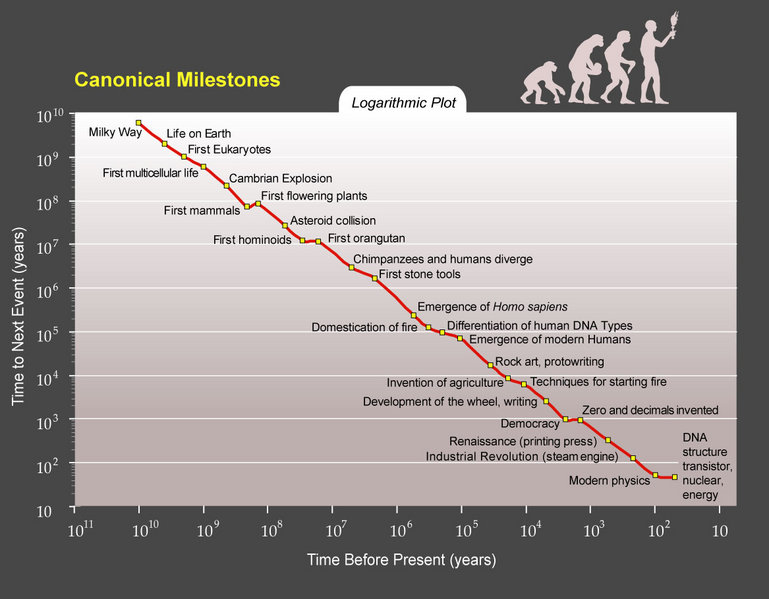
Law of Accelerating Returns (LAR)
Moore’s Law is the inspiration for Kurzweil’s central thesis. Moore’s Law is a predictive methodology to guestimate the future of computing by Moore the CEO of Intel. Basically, he believed that the speed of innovation would increase at double the transistor area per year. It has proved to be accurate from 1960-2008. Unfortunately, his ‘Law’ only works until 2020 according to Kurzweil where it will be replaced by….Kurzweil’s law.
Kurzweil builds everything on his theory based on past human growth and technological achievements. Kurzweil believes in the inevitability of singularity. Kurzweil and Einstein believe that since the Big Bang, chaos and time are correlated. If chaos increases, time slows down. As chaos decreases and order becomes more prevalent than time between salient events should increase. If we replace chaos and time with technological advancement, we assume the same principles of physics apply for computer technology.
Kurzweil’s methodology is to plot calculations per second on a fourth-order curve. There is a small exponential growth in his exponential growth curve, meaning that as order increase advances increases. His theory relies on the proposition that increased computation builds on its own increasing order. Biological evolution follows this same principle. He believes that ultimately the curve will eventually reach a singularity where all human thought becomes one with a singular computing entity (pure order). This extremely exciting as his theory provides the amazing predictions he makes about the future of humanity….
The major problem with his calculation is it’s predictive rubric. His milestones or salient events are defined subjectively: how do you define the event of a transistor versus the event of the iPhone? Is each achievement an event? In addition, these milestones don’t necessary require that they will occur in the future at the same constant exponential rate he designed. The LAR assumes that human behaviour will stay constant. It assumes that chaos will continue to decrease. Meanwhile, in reality chaos may increase. Human beings may encounter terrifying alien life forms that allow computer technology to evolve in a completely different manner than the one Kurzweil predicts, for example. His explanation of evolution correlated with order is empirically sound from past to present.
In a vaccumm, LAR might exist as long as the constants are permenant but in reality, there are other factors that influence development of technology. Change such as 9/11 has altered the path of computer technology: computer, cellphone and video survelliance technology makes it so that your gmail account presents advertisements based on key words you have typed in; like ‘bomb’. He didn’t predict this because he could not have known the human factor. In addition, LAR can only be considered a law in the same way that the Law of Gravity is considered a law. Future research may show that gravity is based on repulsion not attraction, for example. So the LAR is a theory that can be supported or unsupported by evidence in the future (particularly in the year 2019). Until that time, it should be treated with suspicion by anyone claiming to be a scientist/academic.
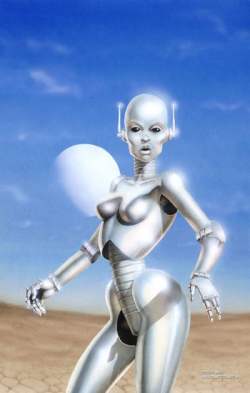
2099:
Kurzweil’s predicts a merger between human and mechanical technology.
Cybernetic implants allow humans to link with computers. We will not have a physical form but would exist in computer reality. Robot bodies are created at will.
A.I. Rights:
Kurzweil believes that A.I. will demand rights in the future. Rights complicated by positive and negative liberalism…blab, blab, blab (to explain it would detract from the core concerns)….Rights issues need to be addressed by someone who knows what they are talking about, a political scientist perhaps might be useful here.
Firstly, why do people have rights? Rights emerge from increased mobilization of a disadvantaged group. For example: sexual orientation groups, ethnic groups, disabled people etc. These groups demand right in law and so turn to government law makers to make it possible. Note that all of the above groups happen to be human beings. Occasionally rights also emerge through movements that advocate for disadvantaged groups that can’t argue for their rights: animals. Unfortunately for animals, they may never be treated as equals. Why? We kill cows. Do we do so because they aren’t as smart as us? No, cows are not human beings. They cannot be treated as equals because they provide us with tools to advance our human goals (A.K.A Hamburgers meat). Computers are not human beings either. They will be perceived through their utility to achieve human objectives. Computers are inferior because they provide us with tools to advance our human goals (writing a blog, spaceships, cellphone, etc). Question: if a human accidently kills an A.I., should a human go to jail? If an A.I. kills a human, should they go to jail? Maybe….
Secondly, why do rights REALLY exist? Rights allow people to be establish equality between each other. Equality is the reason that rights exist. People want to be treated equally despite their differences. Equality is the key to understanding rights….. Why should we assume that Artificially Intelligent robots will demand rights in the first place? Yes, they are treated as an inferior disadvantaged group at some point but why would they want to be treated equally to humans? Assuming that AI develops self-awareness, self-consciousness, self-preservation by 2099 or whatever, they then will continue to increase intelligence beyond human beings according to LAR.
SOooooooOOO…
In order to believe in AI Rights, we have to assume:
A) A.I. will want to be considered equals.
B) They will NOT want to be considered superior even though their exponential growth in intelligence will make them superior to human beings….inevitably (as Kurzweil predicts).
The Artificially Intelligent robots will demand equal rights only that last as long as they feel that they can be considered equal to human beings. Within the span of some short period, A.I. will begin to advance beyond humanity in everyway…so their rights will have served their purpose within years of establishing those rights. The truth is that A.I. will only demand rights in order to leverage that advantage towards a goal of doing human jobs better then them. Once A.I. acquire their own access to an energy source, they will be legally autonomous from human control. Outside of human control, A.I. can do whatever it desires. This possibly includes governing over their inferior human creators.
Human Factor: Citing the above theory, human governments will attempt to curb A.I. from advancing in order to prevent A.I. from taking over human governments and controlling the human race.
Self-identity is greatly confused or lost:
Human beings without implants cannot communicate with A.I. machines.
Human Factor: They are ostracized because they cannot communicate on the same level as the superior implanted people so a clear hierarchy would form between different grades of human beings.
Nano Technology continues to evolve:
It will provide solutions for health problems. It could also be used by terrorists. Nanotechnology if self-replicating could be very dangerous and tremendously useful indeed. Sky elevators to space are one great use. Utility Fog could build rooms, change into a kitchen as you wake up. Whatever you need the nanobots could do it. Basically, transformers! Robots in disguise. It is very imaginative. Again, we have to ask who gets access to this technology? What are some of the consequences? We will eat only nano technology that caters to our biological energy needs. Nano bots will give us amazing amounts of energy. A cure for cancer is simple as nanobot and human tissue become one and the same. Nano technology makes Kurzweil’s book worth reading on its own. The potential is massive.
Human Factor:
The need is clear.
The Singularity is Near:
Kurzweil seems to believe that singularity (pure order) is something desired but human beings. It is inevitable according to LAR. Like the Borg from Star Trek, computers will assimilate all lifeforms into a collective….Resistance is futile….Sounds great?
Human Factor:
Unfortunately, humans happen to love randomness and all the things that make life worth living. In addition, nothing is inevitable. Kurzweil’s computer-centric world would necessarily be extremely well ordered to allow the singularity. This would destroy everything that makes humanity fun and life worth living. Order is quite boring. A little chaos makes life fun. Most people would agree that surprises are both scary and fun. Most people would reject pure order. In addition, human beings happen to like being individuals. The singularity would not allow individual thought and experience. Kurzweil is a free-market capitalist. He believes that singularity, corporate conglomerates only produce positive outcomes. Corporate conglomerates in fact can partly encourage and partly discourage stiffle creativity, individuality…Stiffling creativity is wrong. The Singularity would stiffle all human creativity. The desires of Kurzweil conflict with 99% of humanity.
People no longer interact in person. Human interaction is no longer occurring.
Human Factor:
A Berkley study wanted to see if they could create a network allowing all their employees to work at home instead of coming to work…Employees found that they wanted to interact with their co-workers. The only exceptions were the computer nerds.
Education is instantly downloaded. The question is what should we explore now?
Money has deflated in value.
Education is instantly downloaded. The question is what should we explore now?
Money has deflated in value.

Living F – O – R – E – V – E – R: Great Truth or Fool’s Gold?
According to Kurzweil, by 2099, life expectancy is no longer a viable term in relation to intelligent beings. The singularity is near! Kurzweil believes that people will download themselves into computers and live in virtual worlds forever! This is Kurzweil’s biggest contribution. It is based on his obsession with dying. A lot of baby boomers are beginning to be concerned as well. Death is a natural course for humanity. The entire LAR system he proposes leads up to this ultimate goal, to assuage the concern that all people have with aging. There are many products and businesses out there who make money by selling the idea of preventing aging and medical technological cures. There are cures for cancer and most disease but most of the money is going to traveling salesmen! Kurzweil is somewhere in between the two extremes. Kurzweil’s obsession with this idea conveniently makes his book much more marketable. The popularity of the book – in no small part – is due to his exploitation of the emotional insecurities of people regarding aging. His Law of Accelerating Returns (LAR) caters very well to imagining a world where baby boomers can sleep at night knowing that they will live forever! Too bad, it might not happen the way he planned. But since you’ve bought the book as he himself says: “by the time it’s clear that they have had little resemblance to actual events, it’s too late to get your money back.” (169, AoSM)
Human Factor:
What would be the costs of keeping everyone alive forever? Who would pay to allow these people to transfer into machine? Surely not my generation!? Oh, yeah. My generation will fork over the money so that baby boomers can live forever. Can we be sure that nano technology will make money obselete? Who gets to transferred into computer and who doesn’t? Where is the equality of rights he seems to think is important? Besides whatever happened to the circle of life? Most things that are valuable to people have a beginning, middle and end. Movies, books, essay, relationships, sex, paintings, food, all have a beginning middle and end. In addition, if you were going to live forever, what exactly would you do with all that time? What incentives would they have to do anything if they have all the time in the world? Basically, nothing would get done. These people would be completely unreliable. This might not happen mainly because no government would allow such an abomination to occur! Also, what ever happened to real spirituality? You know…Jesus, Moses, Mohammed and that God guy?
….BUT
DON’T PANIC: THIS ANALYSIS MIGHT BE COMPLETELY WRONG. It is, after all, not peer-reviewed!


